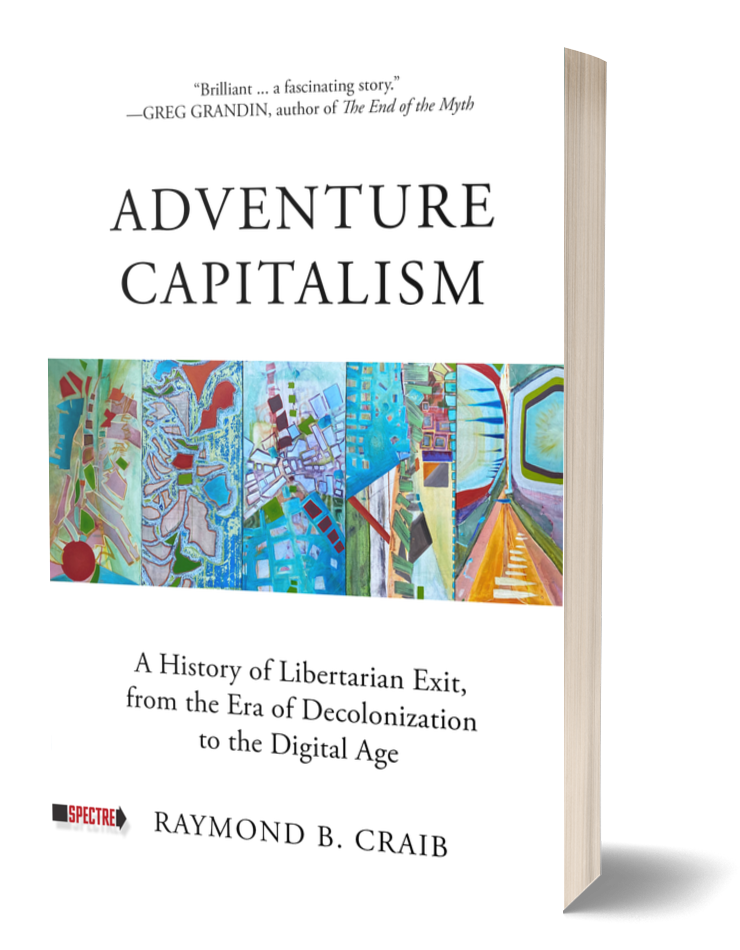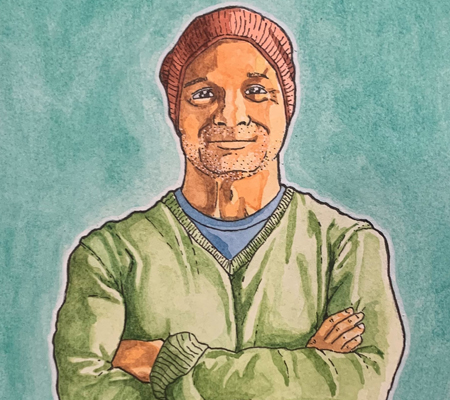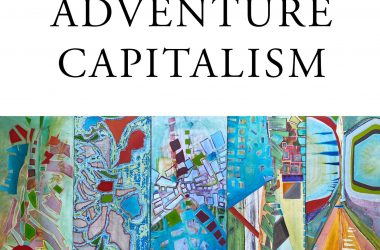By Raymond Craib
LARB
January 25, 2023
Raymond Craib, author of Adventure Capitalism: A History of Libertarian Exit, from the Era of Decolonization to the Digital Age reviews Douglas Rushkoff’s Survival of the Richest in the Los Angeles Review of Books.
IN THE EARLY 2000s, North American entrepreneurs purchased 11,000 acres of land in Chile’s Casablanca Valley with the novel idea, as they saw it, of building a sustainable, self-supporting refuge from society. Invoking Ayn Rand’s famed Atlantis-in-the-Rockies from her 1957 novel Atlas Shrugged, the investors named the community Galt’s Gulch. Among them was Jeff Berwick, who would subsequently move on to Mexico, where he helped found and run the annual libertarian Anarchopulco conference. [1] In the 2010s, a new crop of investors proposed a similar project — this time named Fort Galt — further south, outside the Chilean city of Valdivia.
The Galt’s Gulch dream is a classic capitalist escape fantasy: wealthy captains of industry retreat to luxury compounds far from the inferior masses, where they propose to wait out the economic implosion that will result from their exodus. But as Douglas Rushkoff’s new book Survival of the Richest: Escape Fantasies of the Tech Billionaires reminds us, having to stomach young Randians “going Galt” may be the least of our concerns. The various Galt’s Gulches of the new century are only one manifestation of a range of hypercapitalist escape plans that threaten to leave the rest of us paying the financial, ecological, and political costs.
¤
The opening pages of Survival of the Richest describe what could easily be a scene from a James Bond novel. Our protagonist — in this case, Rushkoff — is flying in business class to a distant airport. Provided with luxuries like noise-canceling headphones and warmed nuts, he will be met by a high-end limousine and ferried to a remote desert location. All of this is at the invitation and expense of an unnamed group of mysterious billionaires.
Despite the large honorarium these billionaires offer him, the exact reason they have invited him to their retreat is initially mysterious: as best as he can figure, he is to provide general insight on technology and its future. Once he finally meets them the next day, he is astonished to discover that they are looking for his guidance on how to survive what they refer to as “The Event” — “the environmental collapse, social unrest, nuclear explosion, solar storm, unstoppable virus, or malicious computer hack that takes everything down.” In their desire to protect themselves from the worst consequences of such scenarios, these individuals have begun to develop various lines of escape: bunkers, seasteads, plans for space colonies, and the like. The catch is that the apocalyptic futures they fear are largely a consequence of their own financial, ecological, technological, and ideological commitments. That they refuse to head off the End of Times by changing their behavior is the central irrationality embedded in what Rushkoff calls “The Mindset” (building on Richard Barbrook and Andy Cameron’s 1995 essay “The Californian Ideology”).






